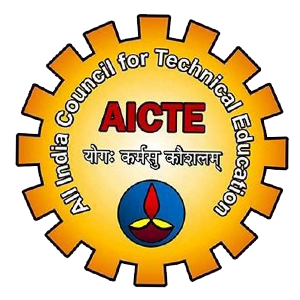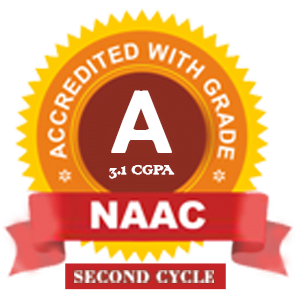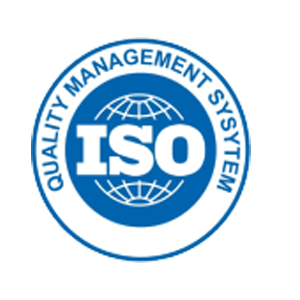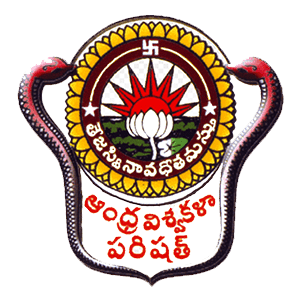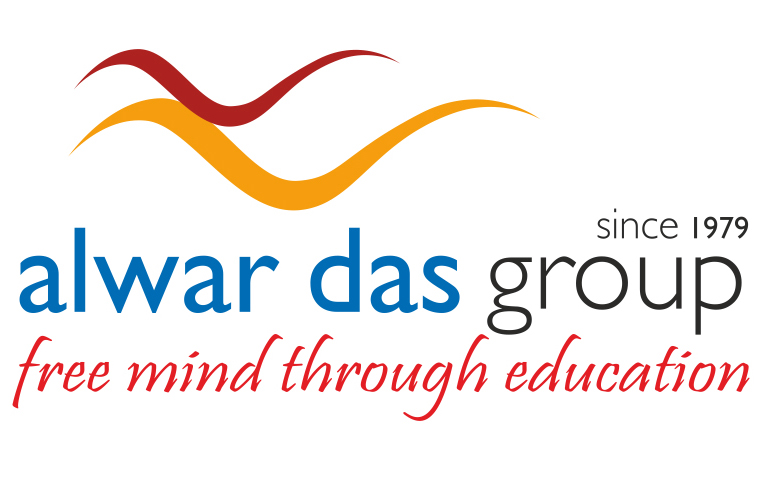Internal Quality Assurance Cell
SVP Engineering College focuses on enhancing and maintaining the quality of education and administrative processes within the institution. The primary aim of IQAC is to systematically improve the quality of education, research, and administration by implementing effective quality management systems.
Vision
- To achieve excellence in holistic development of students to their full potential
- To ensure quality in every walk of camps life
Mission
- Commitment to group effort
- To ensure quality service to all stakeholders of the institute
- Commitment to development of core competencies of both students and the faculty
IQAC Policy
- The main objective of Sanketika Vidya Parishad Engineering College is to an accurate policy and system to enhance the quality of education in the fields of engineering and management with a commitment to ongoing student improvement in terms of technical knowledge, personality development, and career advancement to meet the needs of the society by exhibiting ethical and moral values.
Functions:
- Development and application of quality benchmarks
- Setting parameters for various academic and administrative activities of the institution
- Facilitating the creation of a learner-centric environment conducive to quality education and faculty development to adopt the required knowledge and technology for participatory teaching and learning process
- Collection and analysis of feedback from all the stakeholders on quality-related institutional processes
- Dissemination of information on various quality parameters of higher education
- Organization of intra- and inter-institutional workshops and seminars on quality- related themes and promotion of quality circles
- Documentation of various programmes/activities leading to quality improvement
- Acting as a nodal agency of the institution for coordinating quality-related activities, including adoption and dissemination of the best practices;
- Development and maintenance of institutional database through MIS for the purpose of maintaining and enhancing institutional quality
- Periodical conduct of Academic and Administrative Audits along with their follow-up activities
- Preparation and submission of the Annual Quality Assurance Report (AQAR) as per the guidelines and parameters of NAAC
Benefits
- Ensuring clarity and focus in the institution’s march towards quality enhancement
- Ensuring internalization of quality culture
- Ensuring enhancement and coordination among the various units and activities of the institution and institutionalizing all good practices
- Providing a sound basis for decision-making to improve institutional functioning
- Acting as a dynamic system for quality changes in HEIs
- Building a sound methodology for documentation and internal communication
The Internal Quality Assurance Committee which comprises the following
Si No | Name | Designation | Department |
1 | Dr. T V Rama Krishna | Chairperson | SVPEC, Principal |
2 | Mr. S.Rahul Alwardas | Management Member | Executive Director,AGTI |
3 | Dr. Ch. Venkata Rao | Coordinator | Professor, ECE |
4 | Mr. Sankar N | Member | HR Apollo Tyres |
5 | Ms. A Bhanu Priya | Associate Coordinator | Assistant Professor, ECE |
6 | Mr. M. Mouli Kumar | Associate Coordinator | Assistant Professor,ME |
7 | Dr. B V R Murthy | Member | Dean- R & D |
8 | Mr. A Nageswara Rao | Member | Administrative Officer |
9 | Mr.M.Padmanabham | Member | ME- HoD |
10 | Dr. K N S Lakshmi | Member | CSE -HoD |
11 | Mr. P.Murari | Member | EEE- HoD |
12 | Dr. R. Suneetha | Member | ECE- HoD |
13 | Mr. Gunuru Subrahmanyam | Member | MBA- HoD |
14 | Ms.P.T.S. Priya | Member | MCA-HoD |
15 | Dr.M.Madhuri | Member | CE-HoD |
16 | Mr. P Srinivas | Member | MBA, Assistant Professor |
17 | Mrs. P Gayatri | Member | CSE, Assistant Professor |
18 | Mr. K Satish Kumar | Member | EEE, Assistant Professor |
19 | Mrs. K V Ratnam | Member | Librarian, Central Library |
20 | Mr. K Tulasi Krishna Kumar | Member | Training and Placement Officer |
21 | M Sudha | Member | BS&H- Assistant Professor |
22 | A Bhanu Priya | Member | ECE- Assistant Professor |
23 | M Mouli Kumar | Member | ME- Assistant Professor |
STUDENT MEMBERS
S No | Reg.No. | Student Name |
1 | 322132908042 | S Janaki Devi, CE |
2 | 322132914011 | B Ganesh, EEE |
3 | 322132920018 | D Hemanth Kumar,ME |
4 | 322132912064 | L Shivani, ECE |
5 | 322132910008 | CH Manohar Reddy, CSE |
6 | 123232902095 | T Jhansi Devi Syamala, MBA |
7 | 3232960127 | V Kumari, MCA |
QUALITY INITIATIVES
• Academic and Administrative Audit
• Implementation of examination reforms
• Implementation of OBE
• Feedback Mechanism
• Organizing Guest Lectures
• Industrial Visits
• Participation in AISHE Survey
• Faculty Development Programmes
• Professional Development Programmes
• Environmental Audit
• Student Induction Programme
• Student Orientation Programmes
• Mentor-Mentee Programme
• Orientation Programmes on NAAC Accreditation
• Strategic plan review
• Green Audit
• Energy Audit
SWOT ANALYSIS
The strategic planning process of an Engineering College must begin with SWOT analysis in which strengths, Weaknesses, Opportunities and Threats of the College are analyzed. Following lists of strengths, weaknesses, opportunities and threats exist in a College. For an effective strategic plan self realization of these four components are essential.
STRENGTHS
- Team work of faculty and staff
- Quality graduate programs
- Student environment : Learning communities, programs, student organizations and clubs
- Close relationship between student and faculty
- Willingness to recognize weaknesses and make improvements
- Management, teaching and Non teaching has a commitment to quality, dedication, morale, and work ethics
- Centrally located and well connected to all the areas of the city
- Clean and green campus with all amenities
- Good infrastructure
- Close proximity to industries and R&D organizations
WEAKNESSES
- Caliber of students in academics
- Quality of faculty
- Intercampus communication
- Faculty recruitment
- Lack of long-term budget planning and a process that is transparent
- No research centers of excellence
- Lack of NRI student attraction
- Lack of consistent enforcement of policies and procedures
- Infrastructures and labs need maintenance
- Poorly or inadequately funded programs
- Lack of alternative sources of revenue generation
- Alumni engagement with the college
OPPORTUNITIES
- Innovative learning and teaching
- Use of latest technology (ICT) in teaching and Learning
- Interdisciplinary growth across departments
- Collaborative Research and Development activities with industries
- Consultancy opportunities
- Increase and strengthen internal collaborations and external collaborations
- Financial Support by the stakeholders
- Implementation of New education Policy
- Involve more faculty members in research through incentives.
- Partner with community agencies
- Establish stronger relationships with R&D organizations
THREATS
- Poor student enrolment
- Competition-Admission of Quality Students
- Faculty retention.
- Too many private Universities getting started
- Saturation of engineering education market
- Unchecked student behavior
- No resources from the state and central governments
- Dependence on only tuition fee
- Deemed to be Universities, on-line universities etc
- Continuation of Industry Recession
- Improper use of rating systems
- New AICTE pay scales
- Lack of state and central funding of capital improvements
- Fee reimbursement scheme from the governments
- Delay in payment of tuition fees to the institutions by government
By the consideration of above, the Strategic Plan document is prepared for the Internal Quality Assurance Cell (IQAC) of the College in alignment with the College’s vision, mission and values. The Strategic Plan of the College is the guiding framework for activities and initiatives planned by the Departments and all individual members of the staff.
I.CURRICULAR ASPECTS
- Improve of the admissions of students in various programs
- Introduce of project-based learning start from Semester V
- Introduce job-oriented value-added courses
- Improve pass percentage in all undergraduate programs
- Introduce internships in all undergraduate programs right from the II Year
- Introduction of skill development Programs
- Attempt to get permanent affiliation and 2(f) recognition
II. TEACHING-LEARNING AND EVALUATION
- Increasing of the faculty with PhD Qualification
- Proposed to Register every faculty at least 1 NPTEL Course in the academic Year
- NPTL Swayam Online courses at least 20 students from department for every year
- Introduce formal tutorial system involving advanced learners as paid interns.
- Identification of slow learns and conduct of addition classes
- Conduct of two Teacher-training programmes in an academic year
- Create a systematic approach to assessing learning outcomes such as Cos, POs, PEOs and PSOs
- Strengthen and streamline Curricular and co-curricular activities
- Training programs for Placements, TOEFL, and IELTS etc.
III. RESEARCH, INNOVATIONS AND EXTENSION
- Scopus-listed publications should increased by minimum 20% every year
- Encourage the faculty to register for PhD
- Student co-authored publications to be increased.
- At least one book per Department to be published
- Entrepreneurship Development to be focused on.
- Community Service to be institutionalized.
- NPTEL Swayam Online courses at least 20 students from department
- At least one national conference to be organized
- Consultancy through revenue-sharing mechanism to be encouraged.
- Arrangement of Guest lectures, Industrial Visits, Industrial Lectures for the students and faculty
- Increase the number of MoUs.
- Membership in Professional bodies: 1 No every faculty
IV .INFRASTRUCTURE AND LEARNING RESOURCES
- At least 60% of class room to digitalize.
- Procurement and up gradation of additional computer systems.
- Convert the campus to 100% wi-fi campus
- Increasing the existing cafeteria facilities
- Provide one seminar hall for each department
- Increasing the Library collection
- Augment digital content and make online content available round the clock.
- NPTEL Local Chapter to be launched.
- Increase energy efficiency and renewable energy utilization.
- Security camera coverage on campus to be increased
V.STUDENT SUPPORT AND PROGRESSION
- Strengthen career guidance and placement activities
- Provide guidance and training for higher education in premier institutions within India and abroad.
- Alumni Lecture Series to be institutionalized.
- Conduct Curricular and co-curricular activity programs by peers
- Alumni Association to be strengthened.
VI. GOVERNANCE, LEADERSHIP, AND MANAGEMENT
- Conduct of academic and administrative audit to be strengthened and coverage to be increased.
- Programme Coordinators to be placed as in-charge of UG programmes, creating a new level of leadership.
- College blog to be strengthened as a platform for stakeholder voices to be heard.
- IQAC to be strengthened with alumni representative.
- Monthly HR meetings to celebrate staff and team achievements.
- Take steps to improve transparency at all levels and attempt to provide full disclosure of information about policies and procedures.
VII. INSTITUTIONAL VALUES AND BEST PRACTICES
- Departments to initiate activities that celebrate each of the stated values of the College.
- Focus on empowerment of staff and students.
- E-Resource creation in collaboration with students to be attempted.
- International Days to be identified and celebrated in alignment with institutional and departmental priorities.

